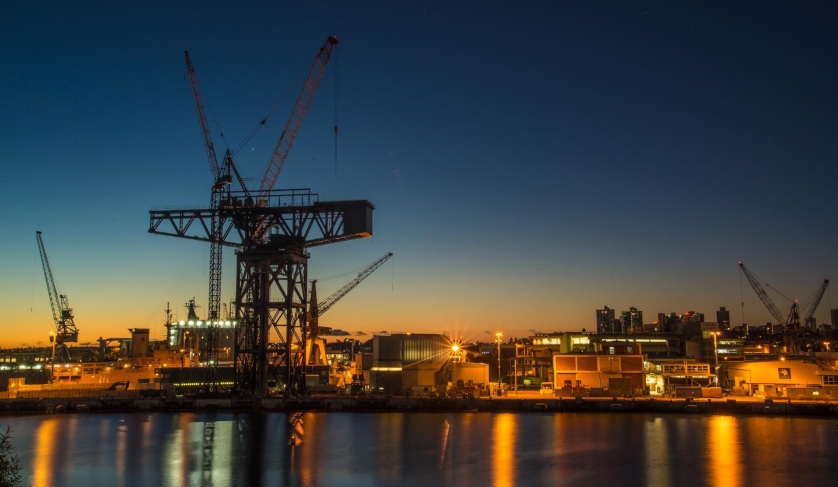The federal budget bolstered funding to improve Australia’s fuel security, but there’s still a long road ahead.
To continue reading the rest of this article, please log in.
Create free account to get unlimited news articles and more!
What does a war in the Indo-Pacific look like if we can’t use our best and most technologically advanced warfighting equipment? What would happen to Australia if the country didn’t stockpile the necessary fuel reserves to actually use fighter jets, ships and land vehicles?
As opined by many before, without basic fuel reserves, Australia isn’t just a non-warfighting nation, but the country is a sitting duck unable to defend itself.
Decades of prosperity and supply chain resilience has led Australia to be too cocksure to protect their fuel security. The assumption by too many in this new generation is that supply chains are assured, and in the event of a total-war scenario, that a first world nation such as Australia would be able to rise to the challenge and swiftly create a world leading energy sector to defend the nation’s interests.
Unfortunately, if the vaccine rollout is any proxy to use for analysing Australia’s industrial ability to rapidly rise to a once in a lifetime challenge, Australia needs a back-up plan to protect its national resilience.
Credit to the Treasurer Josh Frydenberg and the federal budget as it recognised the threat of fuel security and national resilience to Australia’s defence.
The Commonwealth has pledged $50.7 million over the next six years to create a national fuel security framework with additional supporting payments for Australian refiners to ensure grater domestic capacity. According to the budget papers, the payment to Australian refiners is “not for publication”.
The budget expands on the 2020 Australian fuel security package.
“Australia’s fuel security is essential for our national security and underpins our economy. We have been fortunate to have not experienced a significant fuel supply shock in over 40 years. But we currently import around 90 per cent of our liquid fuels,” the package reports.
This will be achieved by addressing four critical areas, including the creation of a diesel storage program in Australia with a $200 million investment, the introduction of "minimum stockholding" requirements, the expansion of commercial opportunities for Australian refineries and supporting the creation of legislation to support the nation in the event of supply chain shocks.
While the Commonwealth government has set the wheels in motion for supporting Australian fuel security, Australian businesses and defence officials must be more cognisant of the threat that war in the Indo-Pacific or Middle East has to Australian defence and critical industry through supply chain shock. With continued hostilities between the Saudi Arabian and Iranian spheres of influence, the risk of warfare remains ever likely.
This over reliance on fuel imports has long been flagged by national resilience experts. Writing for The Daily Telegraph two years ago, senator Jim Molan, a retired Major General who led Australia’s efforts in the Iraq War, directly laid out the problem that Australia faces.
“Sixty per cent of our daily liquid fuel consumption comes as directly imported refined product, and 40 per cent comes from our four remaining domestic refineries. However, 80 per cent of the crude feedstock that goes into our refineries is also imported,” Senator Molan wrote.
“Overall, 90 per cent of our liquid fuel is imported.
“The bottom line is that Australia, at any one time, has only a maximum of 23 days at normal consumption rates of liquid fuel in this country. Even if it was 40 or 50 days it would still be of concern.”
Thanks to the efforts of vocal critics of Australia’s fuel policy such as Senator Molan, we wouldn’t be in the position that we are in now where we are reversing decades of maladministration in this arena. However, because of this maladministration – we have far more to achieve before we are fuel resilient.
Writing for ASPI’s The Strategist in March, ASPI fellow Tony McCormack described that Australia still has other necessary steps to achieve in this crucial area.
“Despite the new projects, there’s still work to do. Increased storage capacity is all for nothing without fuel to fill the tanks. The key vulnerabilities for fuel supply in Australia continue to be the lack of domestic production and the fragility of logistics supply chains. Little of Australia’s fuel is produced in northern Australia, so it must come in either by ship from the north or by road and rail from the south. No aviation fuel is produced in Australia, so it all needs to be shipped in from overseas," McCormack wrote.
Fortunately, the budget addresses those areas of concern by bolstering Australia’s national oil production capacity, though the road ahead for Australia’s fuel security will be long.
Get involved with the discussion and let us know your thoughts on Australia's future role and position in the Indo-Pacific region and what you would like to see from Australia's political leaders in terms of partisan and bipartisan agenda setting in the comments section below, or get in touch with

 Login
Login







